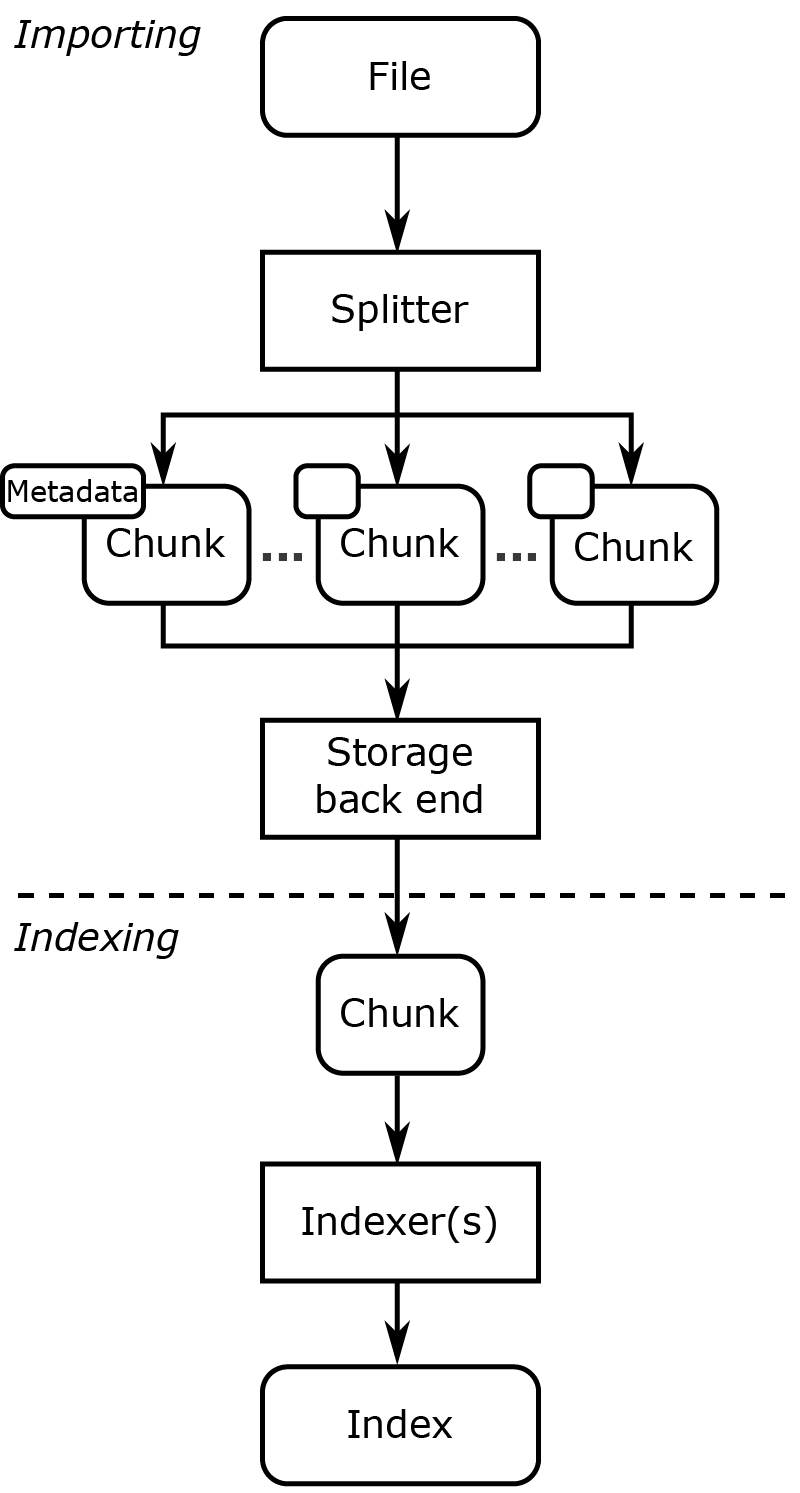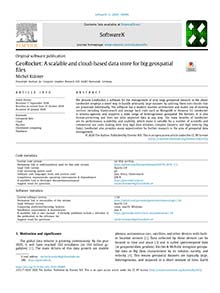GeoRocket: A scalable and cloud-based data store for big geospatial files
One of the projects I’m working on at Fraunhofer IGD is GeoRocket, a high-performance data store for geospatial files. It’s my pleasure to announce that my research paper about this application has just been published in SoftwareX, an open-access journal by Elsevier.
GeoRocket has been designed to manage very large geospatial datasets in the cloud. It employs a novel way to handle arbitrarily large datasets by splitting them into chunks that are processed individually.

The software has a modern reactive architecture and makes use of existing services including Elasticsearch and storage back ends such as MongoDB or Amazon S3. GeoRocket is schema agnostic and supports a wide range of heterogeneous geospatial file formats. It is also format preserving and does not alter imported data in any way.

The main benefits of GeoRocket are its performance, scalability, and usability, which make it suitable for a number of scientific and commercial use cases dealing with very high data volumes, complex datasets, and high velocity (Big Data). GeoRocket also provides many opportunities for further research in the area of geospatial data management.
Reference
Download
The paper has been published under the CC-BY 4.0 license. You may download the final manuscript here.

Posted by Michel Krämer
on 7 February 2020
Next post
Steep 5.1.0 has just been released
The new version of my scientific workflow management system Steep introduces a reworked and modern web-based user interface. It also provides new features that make work with workflows and process chains easier.
Previous post
Steep - Run Scientific Workflows in the Cloud
I’m thrilled to announce that the workflow management system I’ve been working on for the last couple of years is now open-source! Read more about Steep and its features in this blog post.
Related posts
10 recipes for gradle-download-task
gradle-download-task is a Gradle plugin that allows you to download files during the build process. This post summarizes common patterns and use cases of gradle-download-task and provides useful tips and tricks.
GeoRocket 1.2.0
The latest version is one of the biggest releases so far with many new features and bug fixes. The update includes a new storage back-end, support for HTTP/2 and CORS, as well as performance improvements.
GeoRocket 1.3.0
Only two months after the last big release of GeoRocket, we’ve published a new version featuring highlights such as low-latency optimistic merging and progress display during import. Also, a few minor bugs have been fixed.
